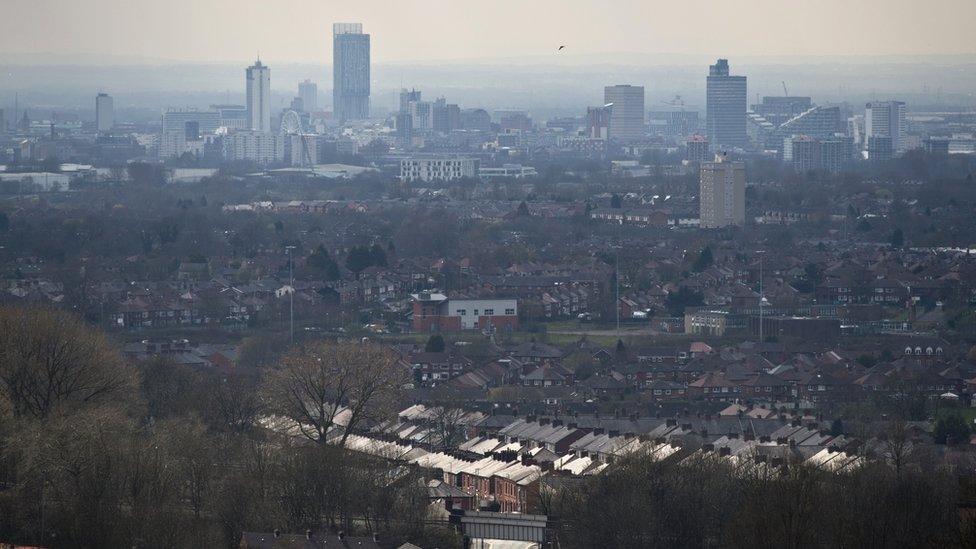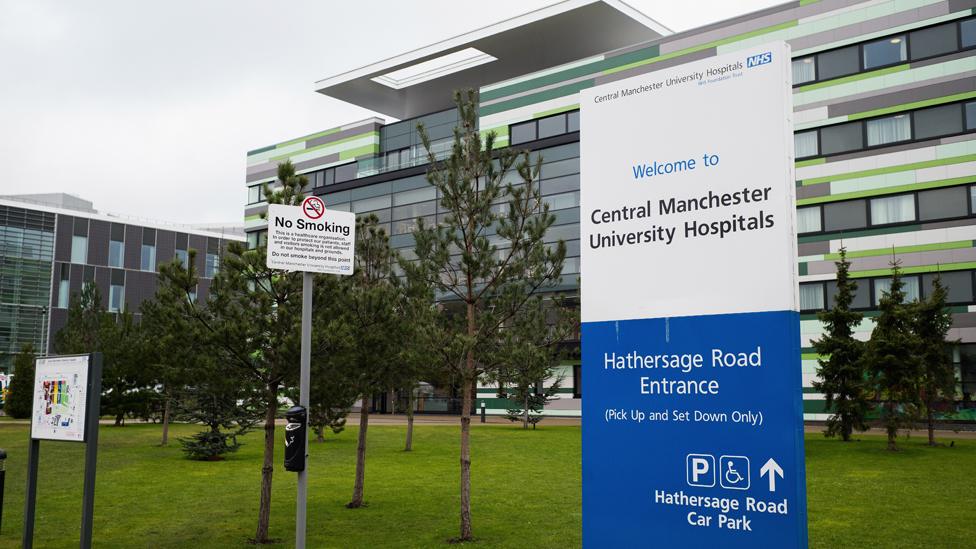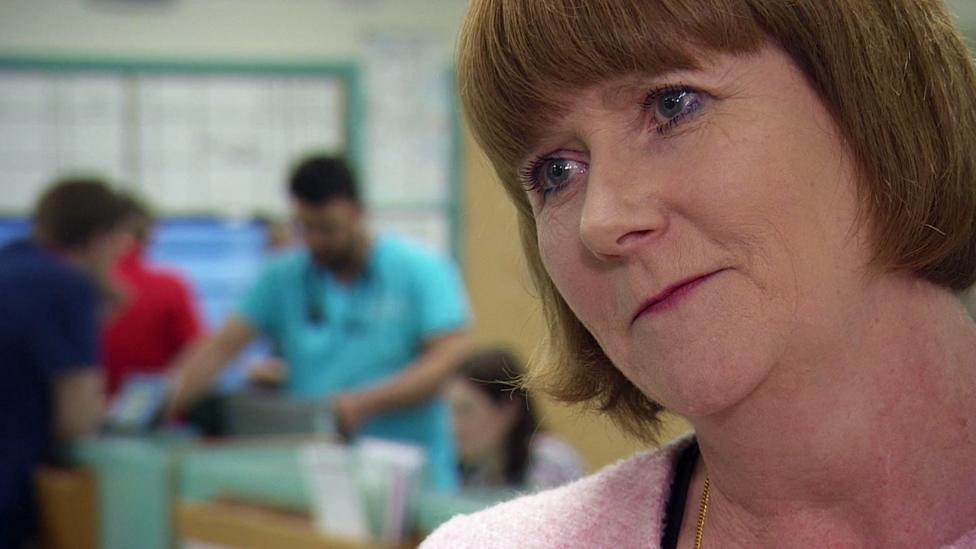How Greater Manchester is smashing the Whitehall model
- Published
- comments

For the first time in over a century, municipal power is returning to Greater Manchester. But this is not simply about shifting budget meetings from Westminster to the North West.
True to their traditions, the local leaders of this proud industrial region are planning something utterly radical. They intend to abandon the Whitehall model, completely rethinking how services are run and how lives can be changed.
At midnight tonight, the 10 councils in the Greater Manchester Combined Authority will take direct control of £6bn of annual health and social care funding, money previously administered by central government ministers in London.
Rather than following departmental priorities and targets, however, they are posing a question - how can we use what resources we have to ensure the greatest and fastest possible improvement to the health and wellbeing of the people of Greater Manchester?
And the answer is to smash the silos.
Greater Manchester has been described as the sick man of England. It has some of the worst health outcomes in the developed world - life expectancy in one neighbourhood can be 15 years less than a place just a few miles down the road.

Demands on the NHS and social services are rising fast. Even with a £6bn annual budget, Greater Manchester must save £2bn by 2021 to break even.
Traditional models of health and social care provision are not working. So Greater Manchester is tearing up the departmental rulebook, promising to stop protecting organisational budgets and power in favour of a genuinely collaborative approach.
Can it really work? The interim mayor of Greater Manchester, Tony Lloyd, tries to convince me that it will.
"We can get people involved in service provision around the same table and design services around people and places," he explains. "Greater Manchester is big enough to have economies of scale but small enough to recognise localism. Whitehall can't do that."
In a scruffy community building in the Platt Bridge neighbourhood of Wigan I see what he means. Individuals from a range of agencies who operate in the area - health, council, police, housing and more - ritualistically remove the badges from around their necks and put them in a pile.

They are not here to represent the interests of their organisations. They are here to improve the lives of people in Platt Bridge.
"This is about removing our individual identities in terms of the agencies we work for. We remove the silo working of what's best for the council, or the police, or health or the fire service, but actually start working together to look at what's best for the communities we serve," Sarah Owen from Wigan council insists.
"Who takes the blame if things go wrong and who takes the credit if things go right?" I ask.
"We all do," she replies.
This is not multi-agency or partnership working, the Platt Bridge team explain. It is true integration - where budgets are pooled and resources shared.
I can't help raising a sceptical eyebrow at this. Will big organisations really be prepared to give up money and power for some greater good? History and experience are not on their side.
"Of course there will be the occasional arm-wrestling contest in Greater Manchester," Tony Lloyd concedes. "But it won't be the sort of arm-wrestling referred back to central government where one minister won't speak to another. People will be sat round a table saying what is good for local delivery? What are we all here for?"
In a busy A&E department at Stepping Hill hospital in Stockport, Chief Executive Ann Barnes tries to convince me that Tony Lloyd's optimism is well placed.
"It is not about the doctors and nurses behind me," she asserts, with a nod to the health teams trying to cope with huge demand. "It is about investing in what makes people healthy. It's about their housing. It's about the transport that enables them to access jobs that aren't just down the road."

Hospital chief executive Ann Barnes
I press the point. Would she really give up her budget in favour of another institution? "We will absolutely give up some of our budget to get social care looking after people in their homes instead of coming in here."
The plans drawn up by health and council bodies are explicit. "To improve the health and wellbeing of the residents of Greater Manchester", the NHS, councils, police, fire, transport, housing and others promise to "put our people and our places before our organisational priorities".
Money from health budgets might be spent on improving public transport or skills training, if that is going to make a real difference to the long-term health prospects of people and places in the area.
"We know that people who have jobs, good housing and are connected to families and community feel, and stay, healthier," the plan states. "So we need to take action not just in health and social care, but across the whole range of public services so the people here can start well, live well and age well."
The ambitions of the health and social care plan barely touch on services for the sick. They will continue to be provided, of course. But success will be measured differently.
They aim to increase the number of children who are at a good level of social and emotional development when they start school while reducing the number of elderly people who suffer serious falls in their homes. The plan wants big reductions in the number of youngsters growing up in poverty and babies born underweight.
Above all, the plan wants to cut the amount spent on the NHS. It's not about saving money, it's about saving lives. That means focusing on prevention, keeping people out of expensive health service facilities and in their own homes and communities.
The people of Greater Manchester appear to know very little about what is about to happen in their area. There have been no votes or formal consultations on the changes - the first election of a metro-mayor will be next year.
Some argue that there is a gaping democratic deficit around a project that is gambling with the health and care services of 2.8 million people.
And without formal legal agreements to back up the new caring-sharing world of Greater Manchester health policy, what happens if a hospital refuses to give part of its budget to social services?
There is, though, palpable excitement among professionals in Greater Manchester. After decades of having to do what they were told by Whitehall, they are talking about "transformation" and "fundamental change" on their own terms.
If it works, if organisational priorities can be forgotten, if people can share money and skills for the greater good, and if the results are as impressive as hoped, "DevoManc" may end up changing the way England is governed.